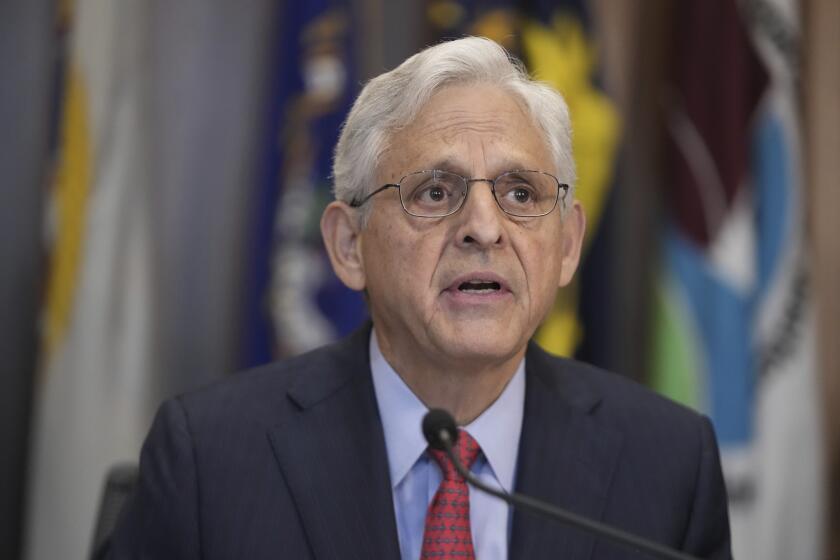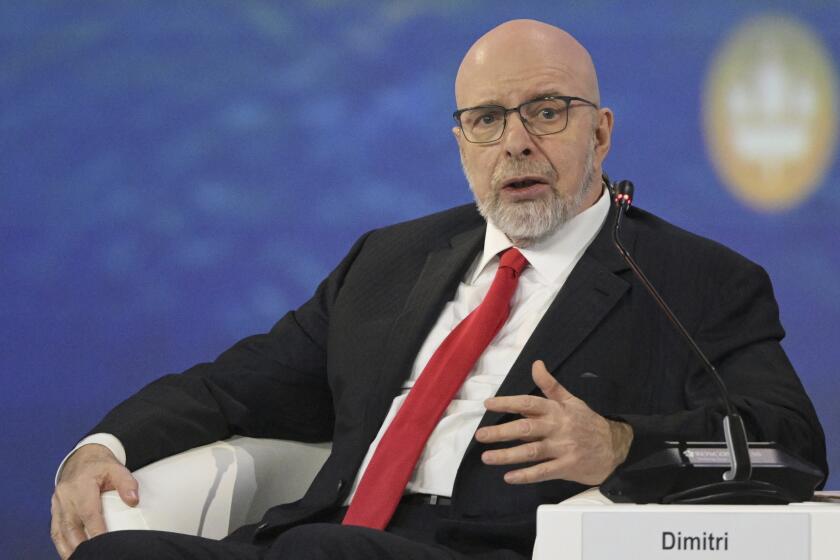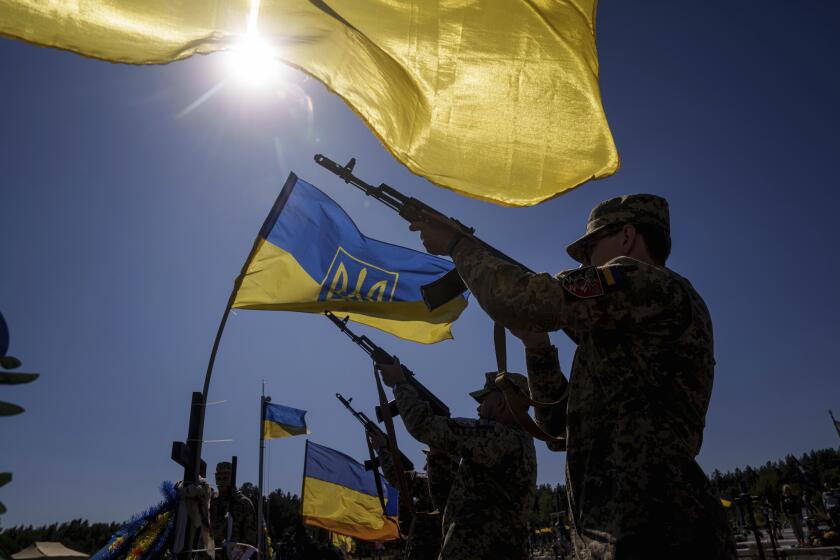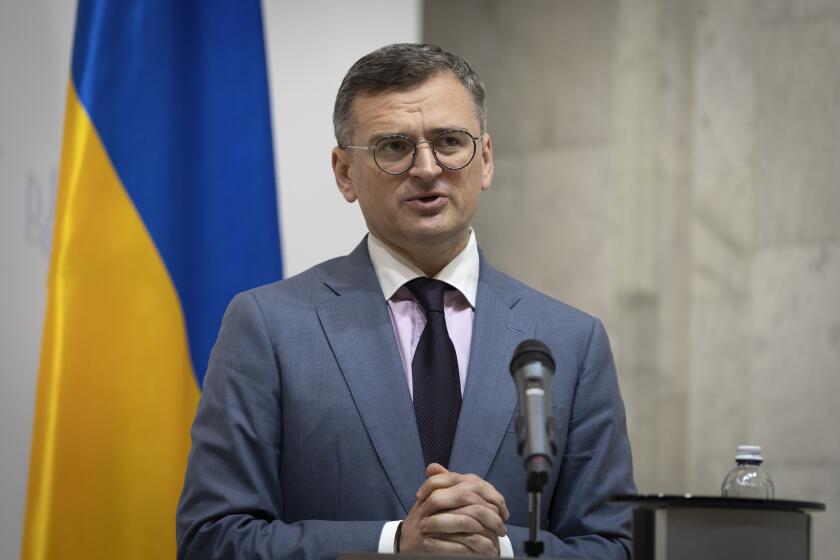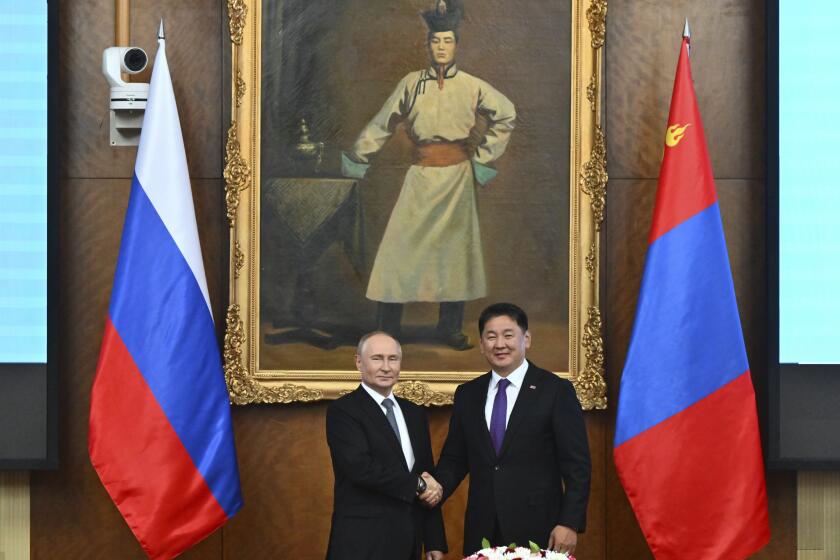U.S. company, Russian propaganda: Kremlin tactic reveals escalating effort to sway U.S. vote

Russia has long sought to inject disinformation into U.S. political discourse. Now, it’s got a new angle: paying Americans to do the work.
The recent indictment of two Russian state media employees on charges that they paid a Tennessee company to create pro-Russian content has renewed concerns about foreign meddling in the November election and revealed the Kremlin’s latest tactic in a growing information war.
If the allegations prove correct, they represent a significant escalation, analysts say, and likely capture only a small piece of a larger Russian effort to sway the election.
“We have seen the smoke for years. Now, here’s the fire,” said Jim Ludes, a former national defense analyst who now leads the Pell Center for International Relations at Salve Regina University. “I don’t wonder if they’re doing more of this. I have no doubt.”
According to prosecutors, the two employees of RT, a Russian outlet formerly known as Russia Today, funneled $10 million to the U.S. media company, which then paid several popular right-wing influencers for their content — in one case $400,000 a month. Two of those influencers said they had no idea their work was being supported by Russia.
The Biden administration has announced criminal charges, the seizure of internet domains and sanctions related to Russian disinformation efforts.
Intelligence officials and private analysts say Russia’s disinformation campaigns are designed to cut off American assistance to Ukraine, clearing the way for a rapid Russian victory after more than two years of bitter conflict.
In the presidential race, Russia supports Donald Trump as the candidate perceived as the least supportive of Ukraine, intelligence officials say. Trump has openly praised Russian President Vladimir Putin, suggested cutting funds to Ukraine and repeatedly criticized NATO. On Thursday, Putin wryly claimed he was pulling for Vice President Kamala Harris.
During a briefing with reporters on Friday, intelligence officials noted that Putin’s public comments often do not reflect Russia’s actual intentions. The RT campaign was part of Moscow’s efforts “to influence voter preferences in favor of the former president” and hinder Harris’ chances, said an official with the Office of the Director of National Intelligence, who spoke on condition of anonymity under rules set by the agency.
A secondary goal of Russian disinformation, officials have said, is to increase political polarization and distrust as a way of eroding American confidence in democracy.
This summer, intelligence officials warned that Russia was using unwitting Americans to spread its propaganda by adapting it to fit existing social debates within the U.S. Instead of creating new conflicts, Russia has found success by identifying and exaggerating existing divides, tailoring disinformation accordingly. When successful, Russia can get Americans to spread its talking points for free, without them even knowing their source.
The U.S. government has charged a Russian-born U.S. citizen and former advisor to Donald Trump’s 2016 presidential campaign with working for a sanctioned Russian state television network and laundering the proceeds.
When an Ohio train derailment caused massive environmental damage last year, Russian voices tried to steer the debate with anti-government posts that were quickly reposted by Americans. Some U.S. websites picked up the Russian propaganda and reposted it without attribution.
This year, Russian state media and networks of fake accounts began to amplify claims about immigration on platforms used by Americans.
When the COVID-19 pandemic began, Russian state media claimed without evidence that the virus was the product of American bioweapons experiments and that the U.S. maintained biological laboratories in Ukraine. English-language posts soon started showing up on American social media sites.
Four years later, the conspiracy theory still reverberates on far-right message boards.
“What if Covid was created in a Ukraine biolab, and the War has been to keep that a secret?” a poster wrote last week on the social platform X.
The company hired by RT was identified as Tenet Media by two of the right-wing content creators it paid — Tim Pool and Benny Johnson. Both men said on social media Wednesday that they had no knowledge of Tenet’s relationship with RT and that if the allegations are true, they are victims.
Pool posted that no one told him what to say in his podcast and condemned Russia: “Putin is a scumbag.”
Russian President Vladimir Putin’s KGB years in East Germany offer a window into his crackdown on protests, war on Ukraine and yearning for empire.
Pool has a long history, however, of espousing pro-Russian, anti-Ukrainian views as well as conspiracy theories about Democrats and American democracy.
On one podcast, he said “criminal elements” within the U.S. government were directing the war against Russia and that Ukraine was the real enemy.
“Ukraine is our enemy, being funded by the Democrats,” Pool said. “Ukraine is the greatest threat to this nation and to the world. We should rescind all funding and financing, pull out all military support, and we should apologize to Russia.”
Trump said on Truth Social that the case amounted to “election interference” by federal prosecutors, who he said were “resurrecting the Russia, Russia, Russia Hoax, and trying to say that Russia is trying to help me, which is absolutely FALSE.”
His comments referred to concerns about Russian meddling in the 2016 election, when groups linked to the Kremlin used social media networks and paid ads on Facebook and other platforms to support Trump. Russia also sought to help Trump in the 2020 election.
China and Iran have mounted their own campaigns to use social media to shape American views. Iran covertly supported protests over the war in Gaza and was recently accused of trying to hack into the campaign systems of both Trump and Harris.
Russia, however, remains the chief threat, intelligence officials say.
Intelligence officials said Friday that the RT campaign shows how Russia is increasingly trying to cover its tracks by outsourcing disinformation campaigns and laundering propaganda through influential U.S. voices. Such campaigns can be harder for authorities to identify and can also make them seem more authentic to unsuspecting Americans.
Russian officials have repeatedly bragged about their ability to shape American views. RT editor-in-chief Margarita Simonyan, who has been sanctioned over her ties to the Russian government, detailed how Moscow tries to hide its fingerprints from U.S. intelligence.
“We create many sources of information that are not tied to us,” Simonyan said recently on a Russian talk show. “While the CIA tries to figure out that they’re tied to us, they already have an enormous audience. This is how we chase each other. It’s actually fun.”
Klepper writes for the Associated Press. AP writer Alan Suderman contributed to this report from Richmond, Va.
More to Read
Sign up for Essential California
The most important California stories and recommendations in your inbox every morning.
You may occasionally receive promotional content from the Los Angeles Times.
